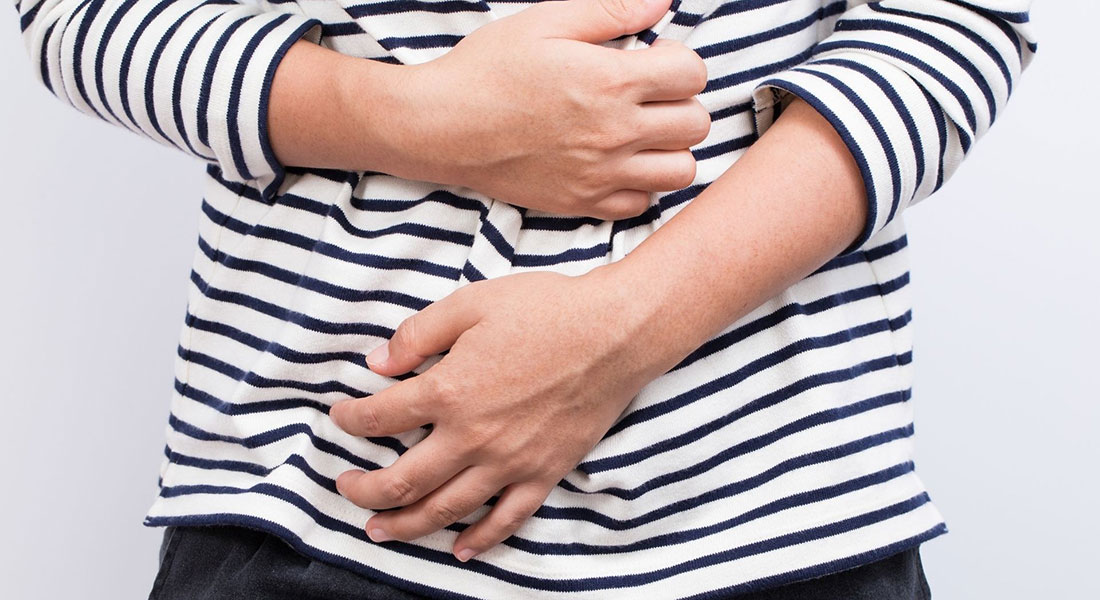Quantum leap towards transplanting stem cells into the intestines
Stem cell transplantation can cure mice suffering from inflammation in the large intestine. This is good news for ulcerative colitis patients, as it may lead to the development of new treatment forms that do not result in ostomy.

In the new study, the researchers describe an optimised method of transplanting healthy stem cells into a sick intestine, where they repair the damaged tissue and thus cure the disease. Photo: Canva.
30-35,000 Danes suffer from inflammation in the large intestine, a condition also known as ulcerative colitis. For a significant part of this group, the disease is so painful and exhausting that they are unable to have a normal job. Nevertheless, many choose to live with the disease instead of getting an ostomy.
“Having an ostomy can be stigmatising, and we therefore welcome solutions that may complement the existing treatment and thus potentially give these patients a choice,” says Professor Kim Bak Jensen, who is responsible for a new study on intestine transplantation.
In the new study, the researchers describe an optimised method of transplanting healthy stem cells into a sick intestine, where they repair the damaged tissue and thus cure the disease. The researchers performed tests on mice, but a lot still has to be done before the new treatment form can be tested on human patients.
A step in the right direction
The new study enables other researchers in the field to reproduce the method, which is a step in the direction of developing a treatment for humans, Professor Kim Bak Jensen explains.
“We are seeing an increase in patients with ulcerative colitis. While some respond well to the existing treatment, others are eventually faced with the dilemma of having part of their intestine removed. Therefore, we hope to be able to help develop a new treatment as a supplement to the existing one,” says Kim Bak Jensen.
In the period 1980-2013, the number of new ulcerative colitis patients almost doubled. In 1980, 11 out of 100,000 Danes had ulcerative colitis, but in 2013, the figure had increased to almost 19 out of 100,000.
Like a living Band-Aid
Over the last 10 years, researchers from the University of Copenhagen have sought to refine the technique of transplanting stem cells into the intestine in mice. Much of the research conducted at the Biotech Research and Innovation Centre (BRIC) and the Novo Nordisk Foundation Center for Stem Cell Biology. Now, the work will continue in the Novo Nordisk Foundation Center for Stem Cell Medicine (reNEW).
“The method itself is very simple. Initially, we grow intestinal stem cells in the laboratory in the form of organoids, and we then insert these healthy epithelial organoids into the intestine of mice suffering from symptoms similar to those of ulcerative colitis patients. The inserted organoids then attach to the damaged parts of the intestine like a living Band-Aid and restore the area,” Kim Bak Jensen explains.
The transplantation takes around 10 minutes and is performed as an endoscopy. So it is a minor procedure that does not involve surgery.
The stem cells for transplantation are taken from biopsies, in this case performed on mice. In the laboratory, the researchers stimulate the stem cells using special growth factors to make them multiply, and they then harvest a larger number of stem cells, which are then reinserted into the mouse. That is, it is the mouse’s own stem cells that help cure it.
Mice with symptoms similar to those of ulcerative colitis patients receiving this form of stem cell transplantation recover faster than control mice.
“We hope to be able to make a difference for this group of ulcerative colitis patients, who are the hardest to treat and thus also the most expensive from a socio-economic perspective,” says Kim Bak Jensen.
The next step in the process is to initiate a dialogue with the Danish Medicines Agency to learn what it takes to get closer to an actual treatment.
Read the entire study, “Transplantation of intestinal organoids into a mouse model of colitis”, in Nature Protocols.
Contact
Professor Kim Bak Jensen
+45 23 81 14 54
kim.jensen@sund.ku.dk
Press and Communications Consultant Liva Polack
+45 23 68 03 89
liva.polack@sund.ku.dk
